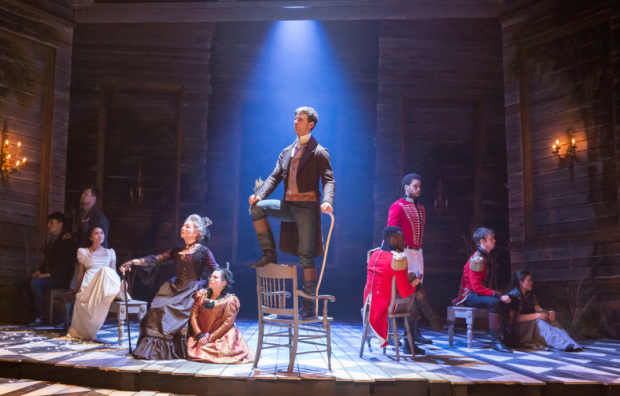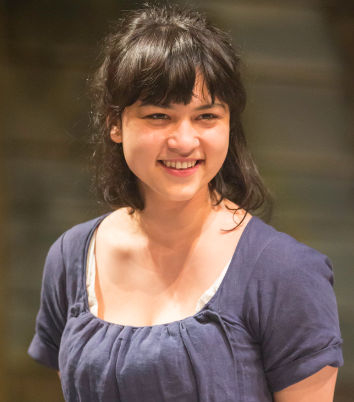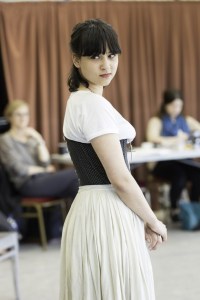Pride and Prejudice (Sheffield Crucible)
A handsome but muddled take on the Jane Austen classic

© Johan Persson
On the one hand, it has to take the story seriously. Austen's got nothing if it can't summon the orchestral sweepings of Lizzy and Darcy's grand romance. We have to will them together like opposing magnets, then hold our breath as they finally – finally! – career into one another's arms, two stubborn souls dropping their guard at last, or else, really, what's the point?
At the same time, though, it can't exactly endorse a world in which women do little more than wait around to be wed, salivating over eligible young bachelors and their estimable estates. Not in 2015. Not given #feminism.
Harvey starts with scepticism: the Bennet sisters swan and swoon around Longbourn House, floating from piano forte to the chaise longue and back again to a sighing string score, before the men – James Northcote's upright Darcy, Royce Pierreson's strapping Wickham, Adam Buchanan's rakish Bingley – descend like male models on a catwalk, backed by the roar of electric guitars. That truth universally acknowledged looks suddenly shaky. If anyone's in want of anything, it's the women.
'Austen's a cultural artefact and Harvey's uneasy about honouring it'

© Johan Persson
However, all that iconoclasm fades away for the sake of the story. If Lez Brotherston's timber stately hall looks, initially, like a shipwreck, suggesting a sunken old society, it ultimately prefers the oil painting romanticism of Derbyshire's countryside. Oliver Fenwick's clever lighting picks up a pastoral scene painted onto the wood. The men wear jeans with their tailcoats, more to cut a dash than to suggest any modernity in their attitudes, and the women breeze around prettily in pastel dresses.
Michelle Austin's Mrs Bennet might seem an absurd figure, running this way and that, shrieking and swooning, as if selling off her daughters in a fire sale, but her view of marriage is ultimately vindicated by a host of happy endings. Harvey never questions the institution of marriage and even Isabella Laughland's Elisabeth, for all the grounded self-assurance of her many rejections, seems to succumb in the end.
Austen's a cultural artefact and Harvey's uneasy about honouring it, but too cautious to critique it in full. She gives us that fond, familiar world – all those bonnets and ballgowns – but is wary of dishing up two hours of period porn.
She's caught, too, between the book and its truth and, while some of her actors play their parts straight as people, others send them up as literary icons. Ruby Thomas makes a vinegary Caroline Bingley, Matthew Aubrey a monotonous Mr Collins, but such caricatures can't restore the real feelings behind Austen's events. When Lydia leaves for Brighton with Wickham, for example, she's a teenage girl on the run – but you'd never know it from the hammy hysteria of the Bennet clan.
All this is serviceable stuff that looks handsome and conjures a surface literary charm. It just struggles to stand up to scrutiny.
Pride and Prejudice runs at Sheffield Crucible until 6 June 2015













